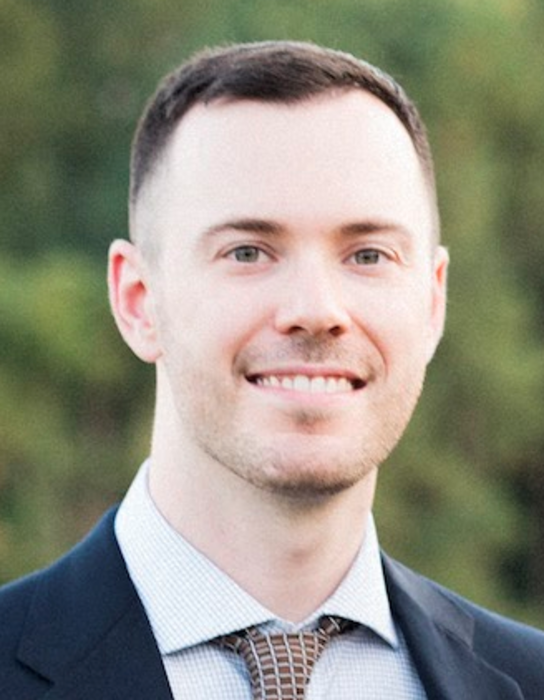Political ideology shapes attitudes about COVID-19 treatments not just for the general U.S. population but also for critical care physicians, according to new research led by University of Pittsburgh scientists.

Credit: Joel Levin
Political ideology shapes attitudes about COVID-19 treatments not just for the general U.S. population but also for critical care physicians, according to new research led by University of Pittsburgh scientists.
Published today in Proceedings of the National Academy of Sciences, the study found that participants with conservative ideology were more likely to view hydroxychloroquine favorably and vaccination unfavorably, and that this was true of laypeople and physicians alike. Conservative ideology was also linked with favorable beliefs about ivermectin among laypeople, but not physicians.
“We already knew that social factors like political identity affect the way that people evaluate information, including scientific evidence. These results are interesting to us because the same appears to be true of highly trained professionals,” said lead author Joel Levin, a Ph.D. student at Pitt’s Joseph M. Katz Graduate School of Business. “This offers clues about the fundamental nature of belief polarization and how to make progress on reducing it.”
Early in the pandemic, ivermectin and hydroxychloroquine were touted as COVID-19 cures by prominent Republican figures and conservative media personalities — despite a lack of scientific evidence to support these claims. As a result, public opinion about these drugs became deeply divided along political lines.
“We know that there have been enormous disparities in prescriptions of hydroxychloroquine and ivermectin between Republican and Democratic counties,” said Levin. “Our study suggests that these patterns are driven not just by patients’ preferences, but also by what doctors think about these drugs.”
Under the guidance of senior author Jeremy Kahn, M.D., professor of critical care medicine at Pitt’s School of Medicine and health policy and management at Pitt’s School of Public Health, the researchers simultaneously surveyed 592 critical care physicians and 900 non-physicians in the U.S.
All participants answered questions about their political ideology and reported beliefs about the effectiveness of ivermectin, hydroxychloroquine and vaccination for COVID-19. Physicians also made decisions about how to treat a hypothetical patient with severe COVID-19.
The team found that political ideology was linked with both groups’ beliefs about vaccination and hydroxychloroquine. Conservative physicians were about five times more likely than their moderate and liberal peers to say that they would prescribe hydroxychloroquine to patients.
“We are living in an era where everything is so heavily polarized, so it was disappointing but not entirely surprising to see that physicians are not able to completely put aside their ideological biases when they approach clinical decision making,” said Kahn, who is also a critical care physician at UPMC.
Levin, Kahn and their team next delved into the roots of politically polarized views on COVID-19 treatments. First, they asked participants how they consumed news. As expected, they found that conservatives were likely to favor Fox News, suggesting that exposure to different information could contribute to polarized beliefs.
They then asked participants to evaluate the results of a study demonstrating a drug was ineffective in treating COVID-19. Some participants were told the drug was ivermectin, but for others it was not identified. When the drug was unidentified, liberals and conservatives drew largely similar conclusions, but when identified as ivermectin, conservatives viewed the study and its findings less favorably than liberals.
When physicians’ responses were analyzed on their own, the analysis did not show clear separation along political lines, meaning that the study cannot claim that physicians evaluate evidence about ivermectin in a politically biased way.
“What our study does show is that people evaluate scientific evidence about ivermectin in a biased way,” explained Kahn. “Physicians are human, and they have biases that are driven by their political ideology. I think there’s a notion among the public that decision makers and experts arrive at their viewpoints through analysis of empirical data and base their decisions on the best available evidence, but this study suggests that this is not the whole story.”
The research adds to a growing understanding that education alone is likely not enough to combat polarization — possibly even among our society’s most expert decision makers — and highlights the importance of developing alternative interventions.
“The challenge now is thinking about how we can achieve consensus among physicians around the best available evidence to treat patients to achieve the best possible outcomes,” said Kahn.
Other authors who contributed to the study were Leigh Bukowski, M.P.H., of Pitt, and Julia Minson, Ph.D., of Harvard University.
This research was funded by the National Institutes of Health (R35HL144804).
###
Journal
Proceedings of the National Academy of Sciences
Method of Research
Survey
Subject of Research
People
Article Title
The political polarization of COVID-19 treatments among physicians and laypeople in the United States
Article Publication Date
6-Feb-2023




